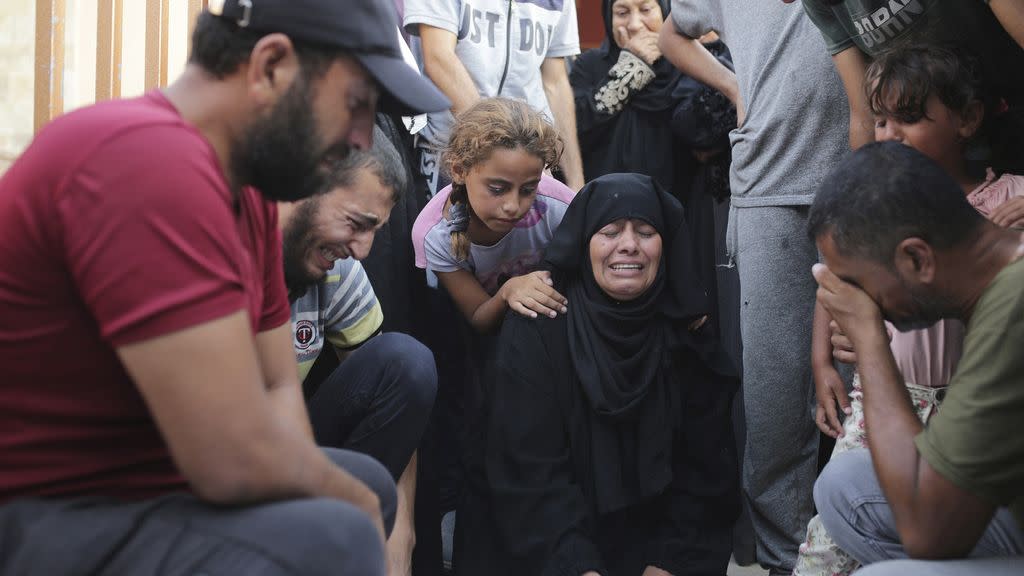Intense fighting in Rafah 'winding down', says Netanyahu

Israeli Prime Minister Benjamin Netanyahu said Sunday that the current phase of fighting against Hamas in Gaza is winding down, setting the stage for Israel to send more troops to its northern border to confront the Lebanese militant group Hezbollah.
The comments threatened to further heighten tensions between Israel and Hezbollah at a time when they appear to be moving closer to war. Netanyahu also signalled that there is no end in sight to the grinding war in Gaza.
The Israeli leader said in a lengthy TV interview that while the army is close to completing its current ground offensive in the southern Gaza city of Rafah, that would not mean the war against Hamas is over. But he said fewer troops would be needed in Gaza, freeing up forces to battle Hezbollah.
“We will have the possibility of transferring some of our forces north, and we will do that,” he told Israel’s Channel 14, a pro-Netanyahu TV channel, in an interview that was frequently interrupted by applause from the studio audience. “First and foremost, for defence”, he added, "but also to allow tens of thousands of displaced Israelis to return home."
Netanyahu is due to address the US Congress on Monday amid increasing tensions between Israel and Washington over the war in Gaza.
The US has been particularly critical recently of the Israeli military's conduct in the Palestinian enclave and the harm done to civilians.
Although the US and other mediators are pushing a cease-fire plan, Netanyahu has ruled out an end to the war until Israel frees all hostages held by Hamas and until it destroys Hamas’ military and governing capabilities.
The current phase of the war “is about to end,” Netanyahu said. “That doesn’t mean the war is about to end.”
Drop in US weapons for Israel
On Sunday, Netanyahu reiterated his claim that there had been a “dramatic drop” in US weapons deliveries for Israel's war effort in Gaza.
Speaking to his cabinet, he said the drop began about four months ago, without specifying which arms shipments were affected.
US President Joe Biden has delayed delivering certain heavy bombs since May, but his administration fought back last week against Netanyahu's charges that other shipments had also been affected.
After Netanyahu levelled the charge for the first time, White House press secretary Karine Jean-Pierre said, “We genuinely do not know what he’s talking about." We just don’t.”
On Sunday, a White House official said the administration had repeatedly stated its position on the matter and declined to respond to Netanyahu's comments.
The person, who wished to remain anonymous, said US officials were looking forward to “constructive consultations” in Washington this week with Israel's visiting defence minister, Yoav Gallant.
Fighting around Rafah continues
Witnesses said at least eight Palestinians were killed on Sunday in an Israeli airstrike on a training college near Gaza City.
They said the strike hit part of a vocational college run by the UN Palestinian Refugee Agency (UNRWA) that is currently being used to provide aid to displaced families.
Israel’s military said the site was being used by Hamas and Islamic Jihad militants and said precautionary measures had been taken before the strike to reduce the risk of harming civilians.
UNRWA said that since the beginning of the war in October last year, nearly 190 of its buildings in Gaza have been hit, and 193 of its team members have been killed in the conflict.
The airstrike came as Israeli tanks pushed further into Rafah, with residents reporting heavy clashes in neighbourhoods in the west of the city in southern Gaza.
The Israeli military said it was continuing "intelligence-based, targeted operations" in the area and had located weapons stores and tunnel shafts and killed Palestinian gunmen.
In Beit Lahiya in the northern Gaza Strip, health officials said two more babies have died of malnutrition.
This brings the death toll from hunger and thirst to at least 31, health officials at Kamal Adwan Hospital said.
In its latest update, the Gaza health ministry said more than 37,598 people had been killed in the enclave since 7 October, many of them women and children, and over 86,000 have been wounded.

 Yahoo News
Yahoo News 
